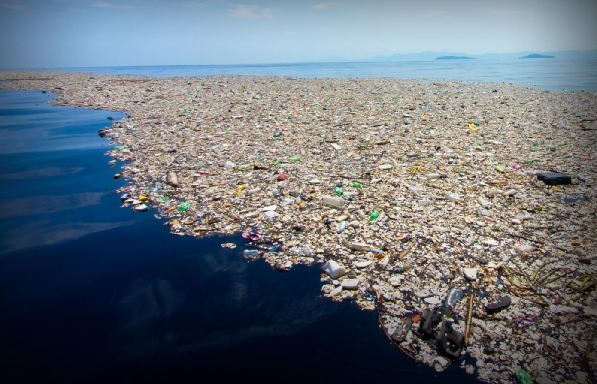The Global Challenge of Ocean Plastic Waste – The world is grappling with the persistent problem of plastic waste accumulating in the oceans. From the vast Pacific Ocean to the shores of the Mediterranean, the scourge of plastic pollution is a growing concern for environmentalists, governments, and citizens alike. This issue is particularly pressing in regions like Japan, where innovative research is underway to develop new types of plastic materials that can easily degrade in seawater. The goal is to reduce the long-term impact of plastic on marine ecosystems and address one of the most critical environmental challenges of our time.
Fishing Industry’s Role in Marine Plastic Pollution
Japan’s fishing industry is a significant contributor to the nation’s economy, especially in regions like Ehime Prefecture on Shikoku Island’s western coast. Here, in the town of Ainan, fishing is a thriving industry, known for its abundant harvests of sea bream, pearls, and other marine resources. However, alongside its economic benefits, the fishing industry also has a darker side – it is a major source of marine plastic pollution.
In 2016, Japan’s Ministry of the Environment conducted a survey revealing that nearly two-thirds of the plastic waste washing ashore in certain areas comes from the fishing industry. The report highlighted that over 40% of the country’s marine plastic pollution originates from discarded fishing nets, ropes, and other fishing gear. These materials, once lost or abandoned in the ocean, continue to pose a threat to marine life, as they do not easily degrade and can persist for years, if not decades.
The Consequences of Plastic Pollution on Marine Ecosystems
The accumulation of plastic waste in the oceans has dire consequences for marine ecosystems. Marine animals, including fish, seabirds, and turtles, often mistake plastic debris for food, leading to ingestion that can cause injury or death. Additionally, plastic waste can entangle marine life, leading to restricted movement, injury, or drowning. The degradation of plastics into microplastics also poses a significant threat, as these tiny particles can enter the food chain, potentially affecting human health.
Moreover, plastic pollution affects the economic livelihood of coastal communities dependent on fishing and tourism. Polluted beaches and waterways deter tourists, while the contamination of fish stocks can have economic repercussions for those relying on the fishing industry. The global community is increasingly recognizing the urgent need to address this issue to protect both marine life and human interests.
Innovative Solutions: Developing Biodegradable Plastics
In response to the growing plastic pollution crisis, Japanese researchers are working on developing new types of plastics designed to degrade more rapidly in the marine environment. These biodegradable plastics offer a promising solution to reducing the long-term impact of plastic waste on the oceans. Unlike conventional plastics, which can take hundreds of years to break down, these new materials are engineered to degrade in seawater, minimizing their environmental footprint.
One of the leading initiatives in this area is focused on creating fishing nets and other equipment from these biodegradable materials. If successful, this innovation could significantly reduce the amount of plastic waste generated by the fishing industry. Additionally, it would help protect marine life from the dangers associated with plastic pollution, as these materials would break down before causing harm.
The Role of Legislation and Public Awareness
While technological innovations are crucial, they must be complemented by robust legislation and increased public awareness to effectively combat marine plastic pollution. Governments around the world are implementing stricter regulations on plastic use and disposal, particularly in industries like fishing. For instance, some countries have introduced mandatory recycling programs for fishing gear or incentives for using environmentally friendly materials.
Public awareness campaigns are also vital in encouraging responsible behavior among consumers and industries alike. Educating people about the impact of plastic pollution and promoting the use of alternatives can drive significant change. Communities can play a role by participating in beach cleanups and supporting policies that reduce plastic waste.
Looking Ahead: A Collaborative Effort to Protect the Oceans
The fight against marine plastic pollution requires a collaborative effort involving governments, industries, scientists, and citizens. While challenges remain, the development of biodegradable plastics and other innovative solutions offers hope for a cleaner, healthier ocean. By combining technological advancements with policy initiatives and public engagement, it is possible to turn the tide on plastic pollution and ensure a sustainable future for our oceans.
The world must act swiftly and decisively to address this critical issue. The health of our oceans and the countless species that depend on them, including humanity, is at stake. With the right combination of innovation, regulation, and education, we can reduce plastic pollution and protect the vital ecosystems that sustain life on Earth.











